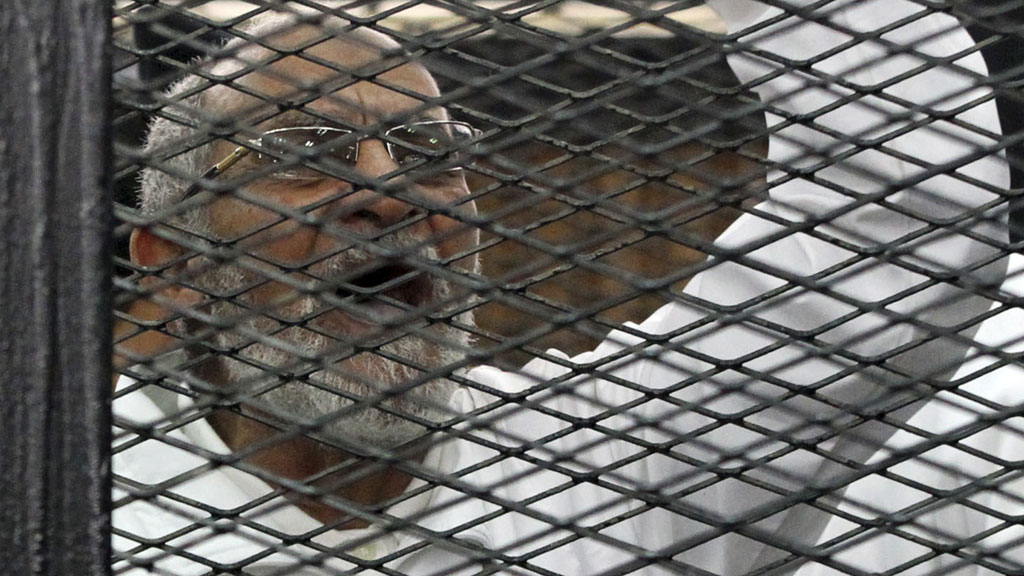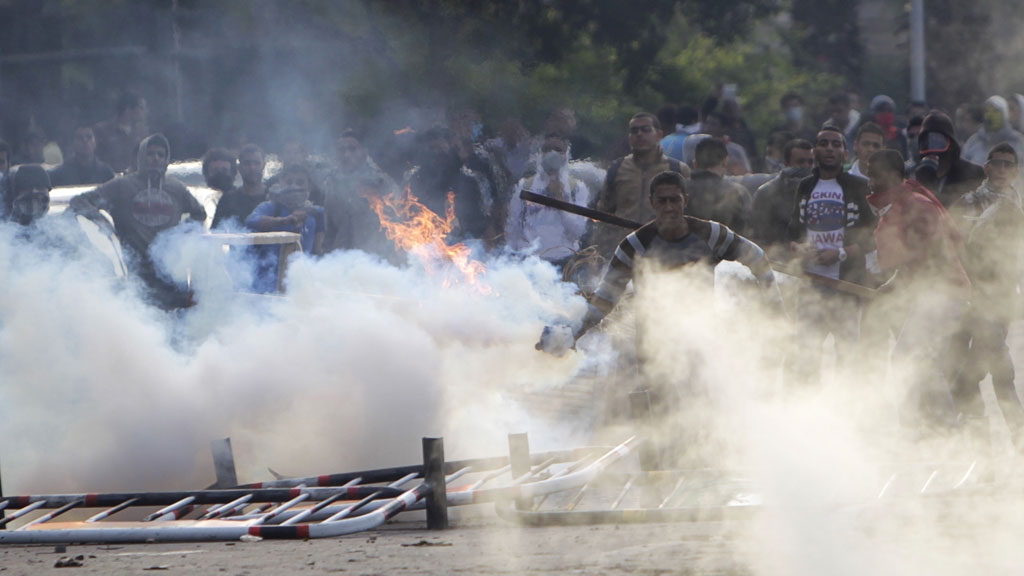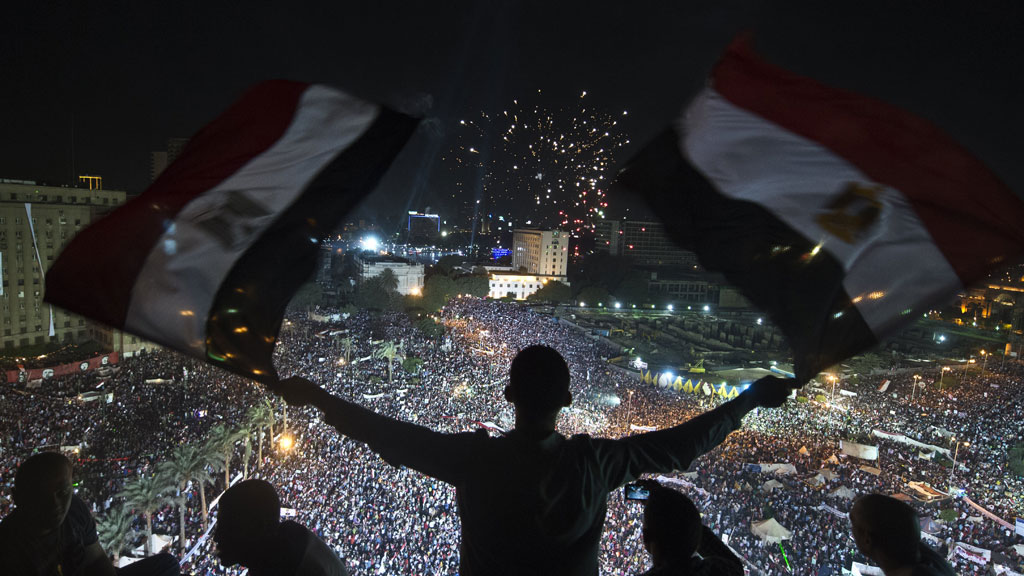Chaos in court stalls trial of Muslim Brotherhood leaders
Judges in Egypt walk out after leaders of the Muslim Brotherhood shout slogans and refuse to co-operate as they appear in court.

Senior Muslim Brotherhood member Mohammed Badie (above) led his co-accused in chants against the army-backed government, shouting “down, down with military rule”.
Mr Badie and fellow defendants, who are accused of are charged with inciting the killing of protesters, were arrested in a crackdown on the Islamist group after the army toppled Islamist President Mohammed Morsi in July following mass protests against his rule.
Read more: Muslim Brotherhood spiritual leader Badie arrested
It was the second time their trial had been halted. In October, a separate panel of judges withdrew from the case after a hearing which the defendants did not attend.
It will now be transferred to the Cairo appeals court.
Referendum
The charge against Mr Badie, his deputy Khairat al-Shater, and senior Brotherhood members Saad Katatni and Mohammed El-Beltagi relates to an anti-Brotherhood protest near the group’s Cairo headquarters on 30 June in which nine people were killed and 91 wounded.
Security forces have piled pressure on the Brotherhood, banned by a court in September, as authorities press ahead with a planned transition expected to yield presidential and parliamentary elections next year.
The next step is a referendum on a new constitution, expected in mid-January.
A 50-member assembly finished the draft last week and handed it to interim President Adly Mansour, who will announce the date of the referendum in a speech on Saturday, his office said in an e-mailed statement.

“Egypt tasted the sweetness of freedom, dignity and pride after Morsi took the presidency after the January revolution and he will not abandon (the revolution),” Mr Badie told the court, according to judicial sources.
Mr Morsi came to power after the ousting of autocrat Hosni Mubarak in early 2011.
Read more: why Egypt's future prospects are hanging in the balance
Relatives of the accused, who earlier chanted “the judiciary of the military” along with the defendants, erupted in applause after the judge announced the case would be transferred.
Mr Badie said earlier this week the Brotherhood had perpetrated no violence, as his trial in another case began at a police academy.
Tear gas
Police fired tear gas for the third day running on Wednesday at student supporters of the Brotherhood at Al-Azhar University, the scene of frequent anti-government demonstrations.
Interior Minister Mohammed Ibrahim told a news conference that security forces could “finish off” protests “in five minutes” but that he was trying to avoid injuries. He has presided over the security forces during the worst violence in Egypt’s history following the army’s ouster of Morsi.
Despite the crackdown, the Brotherhood has held near-daily demonstrations, undeterred even since security forces killed hundreds of protesters in August.

Egypt: a timeline
June 2013: thousands of Egyptians descend on Tahrir Square
July 2013: Mohammed Morsi is ousted as Egypt's president
July 2013: Egypt's government orders the arrest of spiritual leader Mohammed Badie
July 2013: pro-Morsi supporters hold a rally in the capital Cairo
August 2013: Egypt declares a month-long state of emergency
August 2013: Mohammed Badie is arrested
September 2013: president Mohammed Morsi stands trial
October 2013: 51 people die after fresh clashes in Egypt
November 2013: Mohammed Morsi trail is adjourned
-
Latest news
-
Boy with profound learning disabilities reaches out of court settlement after abuse in residential school7m

-
India election: Modi rivals hit by string of raids and arrests7m

-
Can UK’s abandoned mines be used to build a greener future?5m

-
Sycamore Gap: Man pleads not guilty to felling iconic tree2m

-
‘Child poverty has not fallen since Tories came in’, says Gordon Brown5m

-




